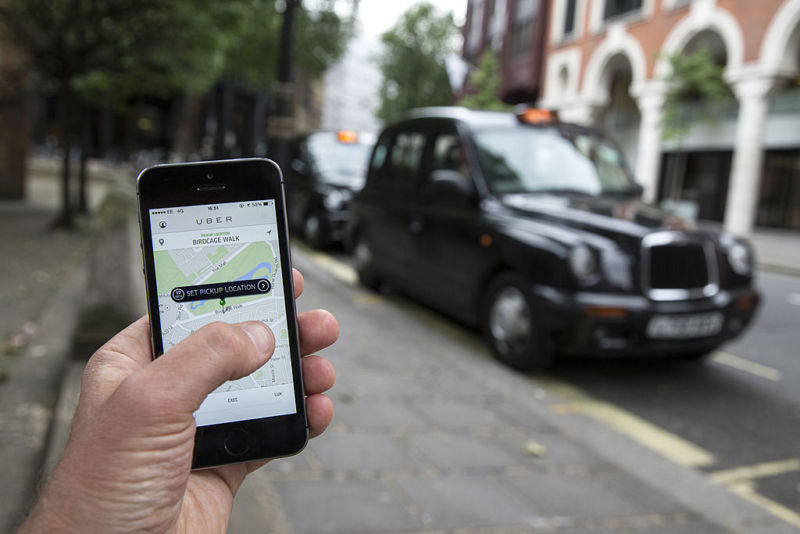
Enlarge (credit: Oli Scarff/Getty Images)
Uber has been using a tool called “Greyball” to identify authorities in markets where the ride-hailing service is curtailed or outright banned by regional rules. If the authorities try to hail a ride through Uber’s app, the company will show ghost cars, which aren’t really in the area, or show no cars in the area at all.
According to the New York Times’ Mike Isaac, who spoke to current and former Uber employees, Greyball tries to identify authorities through a number of vectors. Geofencing certain municipal offices and watching who frequently opens and closes the Uber app is an option. Or Uber can check if a credit card used to sign up for its service is linked to a police credit union.
In other cases, Uber has gone to greater lengths to identify potentially hostile enforcement officers from finding Uber rides. To prevent authorities from buying stacks of cheap phones and signing up for service through those, the New York Times writes, Uber employees “went to that city’s local electronics stores to look up device numbers of the cheapest mobile phones on sale, which were often the ones bought by city officials, whose budgets were not sizable.” If Uber was not able to determine whether a potential rider was a threat or not, the company would gather data from publicly available social media or seek out other information online.

